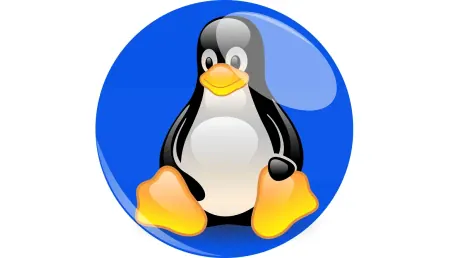Switching to a new operating system can be a daunting task, especially for those who have grown accustomed to the functionalities and quirks of their current system. However, for many users, the Linux operating system offers a range of benefits that make the transition not only manageable but also advantageous. Whether you are a programmer, someone with older hardware, a user focused on web browsing, a free and open-source software enthusiast, or simply looking for a new computing experience, Linux has something to offer you. This article delves into why Linux might be the optimal choice for you based on your specific needs and preferences.
Programmers and Coding Enthusiasts
One of the significant advantages of Linux is its tremendous appeal to programmers and coding enthusiasts. Many Linux distributions come pre-installed with essential programming tools like GCC (GNU Compiler Collection), GDB (GNU Debugger), Vim, and Python, which significantly reduces the initial setup time and effort. Unlike other operating systems where users might need to download and configure these tools manually, Linux provides a ready-to-use development environment, saving valuable time and minimizing hassle.
Moreover, the level of control Linux offers through root access is unparalleled. Users can dive deep into system operations, allowing them to manipulate the operating system extensively to suit their development needs. Root access is particularly beneficial for tasks involving system configurations, such as setting up web servers, configuring databases, and managing other system services. Technologies like Docker, PostgreSQL, and Redis also run natively on Linux, offering enhanced performance by eliminating the need for extra virtualization layers. This native performance advantage can be crucial for developers looking to optimize their workflow.
Linux serves as the native environment for most server and cloud technologies, providing developers with practical exposure to real-world infrastructure that is invaluable for refining programming skills. By using Linux, developers gain familiarity with the environment they are likely to encounter in professional settings, thus gaining an edge in the job market. Even those who do not identify as programmers may find these benefits compelling, as they streamline many aspects of computing and development work.
Users with Old Hardware
For users struggling with older laptops or desktops that no longer support contemporary Windows versions or experience sluggish performance, Linux offers a practical solution. Many lightweight Linux distributions like Lubuntu, Xubuntu, and Puppy Linux are designed to run efficiently on older and less powerful hardware, breathing new life into aging machines. This capability is particularly important for users who want to extend the lifespan of their devices without investing in costly upgrades.
Even more robust Linux distributions exhibit a high level of efficiency, allowing older CPUs and limited RAM to perform more effectively. For example, while running Windows 11 might require up to 16GB of RAM for smooth operation, Linux can deliver comparable performance with as little as 4–8GB of RAM, or even less when using lighter distributions. Linux’s efficiency in resource management means that more computational power and memory can be allocated to applications and daily tasks, improving overall user experience.
Opting for Linux also supports sustainability and reduces e-waste, as it allows users to avoid frequent hardware upgrades. This environmentally friendly approach is not just beneficial for secondary machines or basic workstations but is also ideal for users who are conscious of their ecological footprint. By adopting Linux, users can maintain productivity and achieve efficient performance without incurring additional financial costs, making it an attractive option for those with older hardware.
Users Primarily Browsing the Web
For users whose computing needs revolve mainly around web-based tools and applications, Linux presents itself as an ideal choice. All major web browsers, with the exception of Safari, are compatible with Linux, including Chrome, Firefox, Edge, and Brave. Installing these browsers through a Linux distribution’s software repository ensures that users download clean and secure versions, free from unwanted bloatware or extensions that could compromise performance.
Linux’s lighter demand on system resources allows for more efficient browser multitasking. This is particularly advantageous for users who tend to open numerous tabs simultaneously or use resource-intensive web applications like Google Docs, Figma, Notion, or Slack. In comparative scenarios, a dual-boot system with both Linux and Windows on the same hardware often shows that Linux can handle more tabs and deliver a faster, smoother browsing experience due to its efficient resource management.
Furthermore, Linux is known for its strong emphasis on privacy and security, which is particularly beneficial for users with primary web usage. Robust firewall tools and a lower incidence of targeted malware make Linux a more secure platform for browsing the internet. Though Linux distributions are relatively secure, users are still advised to follow best cybersecurity practices, such as keeping security patches up-to-date and avoiding the installation of untrusted applications. This combination of performance, security, and efficiency makes Linux an appealing choice for web-centric users.
Enthusiasts of Free and Open Source Software (FOSS)
Linux’s support for free and open-source software (FOSS) stands out as one of its most compelling advantages. While premium software products like Microsoft Office and Adobe Creative Suite may not run natively on Linux, numerous powerful alternatives are available that cater to a wide range of needs. Applications such as LibreOffice for office productivity, Krita for digital painting, Inkscape for vector graphics, GIMP for image editing, Blender for 3D rendering, and Audacity for audio editing offer robust functionality without the financial cost associated with commercial software.
The Linux ecosystem is also home to minimalistic programs designed to perform specific tasks exceptionally well. For instance, Apostrophe serves as an excellent writing tool, Amberol is perfect for local music playback, and Planify offers effective task management solutions. These programs are often not available natively on Windows or macOS, highlighting Linux’s unique advantage for FOSS enthusiasts.
Users who primarily rely on freeware and do not depend on premium commercial software will find switching to Linux to be a liberating experience. Access to thousands of free applications through software repositories and package managers ensures users have extensive options to meet their specific needs. This vast selection of FOSS applications allows users to build a customized computing environment that aligns with their preferences and requirements, further enhancing the appeal of Linux.
Users Seeking New PC Experiences
Switching to a new operating system can seem intimidating, particularly for those who are deeply familiar with their current system’s features and nuances. Yet, many users find that the Linux operating system provides a host of advantages that make the switch not only feasible but also beneficial.
Linux is especially appealing if you fall into certain categories. For instance, if you’re a programmer, Linux offers an environment that supports a wide range of programming languages and development tools. If you’re dealing with older hardware, Linux tends to be less resource-heavy compared to other operating systems, giving new life to your aging machines. Moreover, for those who primarily use their computer for web browsing, Linux provides a secure and efficient browsing experience.
Enthusiasts of free and open-source software will find Linux particularly attractive because it is built on the principles of openness, collaboration, and transparency. There’s a broad community of users and developers who contribute to its continuous improvement, making a plethora of software freely available.
Additionally, if you’re simply seeking a new computing experience, Linux offers a diversified range of desktop environments and customization options, allowing you to tailor your system to fit your needs exactly. This article explores why Linux might be the perfect fit for you based on these unique needs and preferences, making the transition not only less overwhelming but ultimately rewarding.









